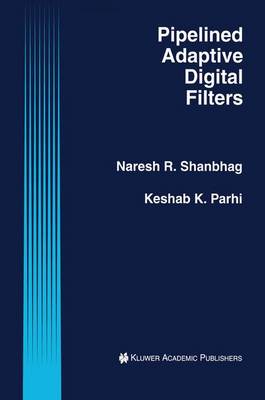Adaptive filtering is commonly used in many communication applications including speech and video predictive coding, mobile radio, ISDN subscriber loops, and multimedia systems. Existing adaptive filtering topologies are non-concurrent and cannot be pipelined. Pipelined Adaptive Digital Filters presents new pipelined topologies which are useful in reducing area and power and in increasing speed. If the adaptive filter portion of a system suffers from a power-speed-area bottleneck, a solution is provided.
Pipelined Adaptive Digital Filters is required reading for all users of adaptive digital filtering algorithms. Algorithm, application and integrated circuit chip designers can learn how their algorithms can be tailored and implemented with lower area and power consumption and with higher speed. The relaxed look-ahead techniques are used to design families of new topologies for many adaptive filtering applications including least mean square and lattice adaptive filters, adaptive differential pulse code modulation coders, adaptive differential vector quantizers, adaptive decision feedback equalizers and adaptive Kalman filters. Those who use adaptive filtering in communications, signal and image processing algorithms can learn the basis of relaxed look-ahead pipelining and can use their own relaxations to design pipelined topologies suitable for their applications.
Pipelined Adaptive Digital Filters is especially useful to designers of communications, speech, and video applications who deal with adaptive filtering, those involved with design of modems, wireless systems, subscriber loops, beam formers, and system identification applications. This book can also be used as a text for advanced courses on the topic.
- ISBN13 9781461361510
- Publish Date 8 October 2012 (first published 30 June 1994)
- Publish Status Active
- Publish Country US
- Imprint Springer-Verlag New York Inc.
- Edition Softcover reprint of the original 1st ed. 1994
- Format Paperback
- Pages 187
- Language English
